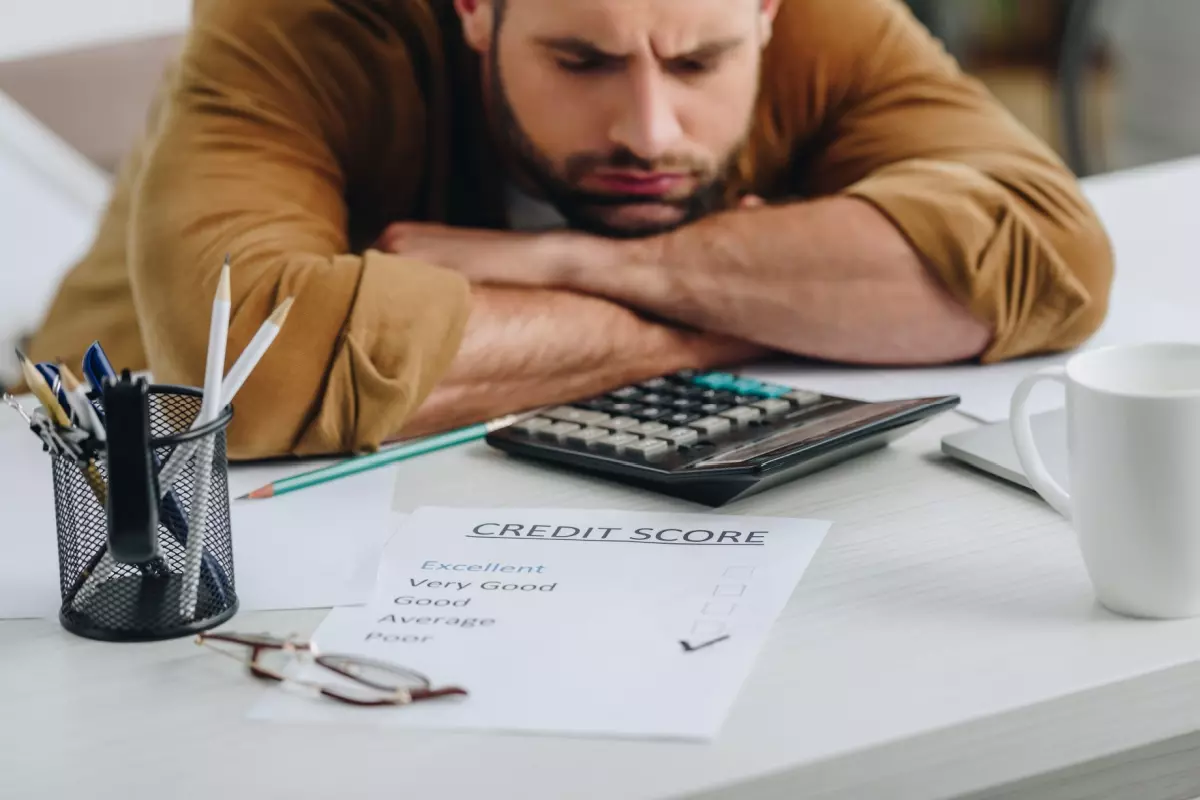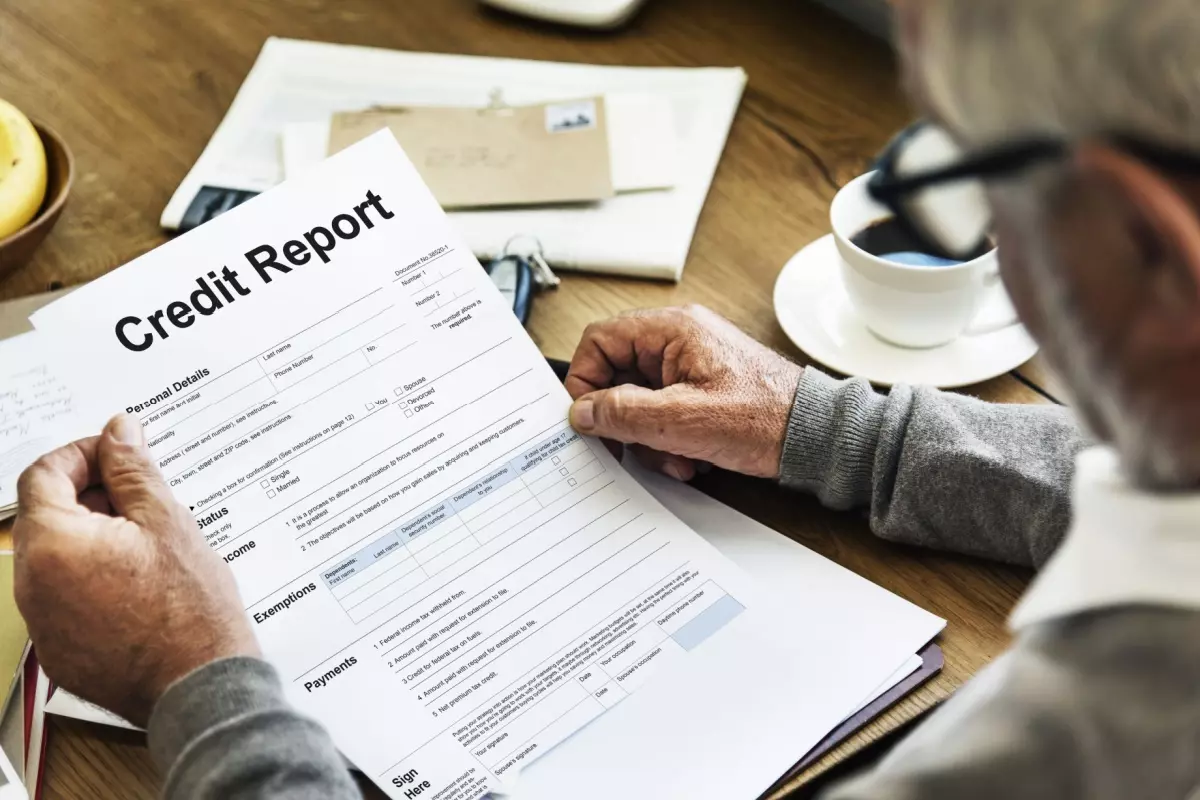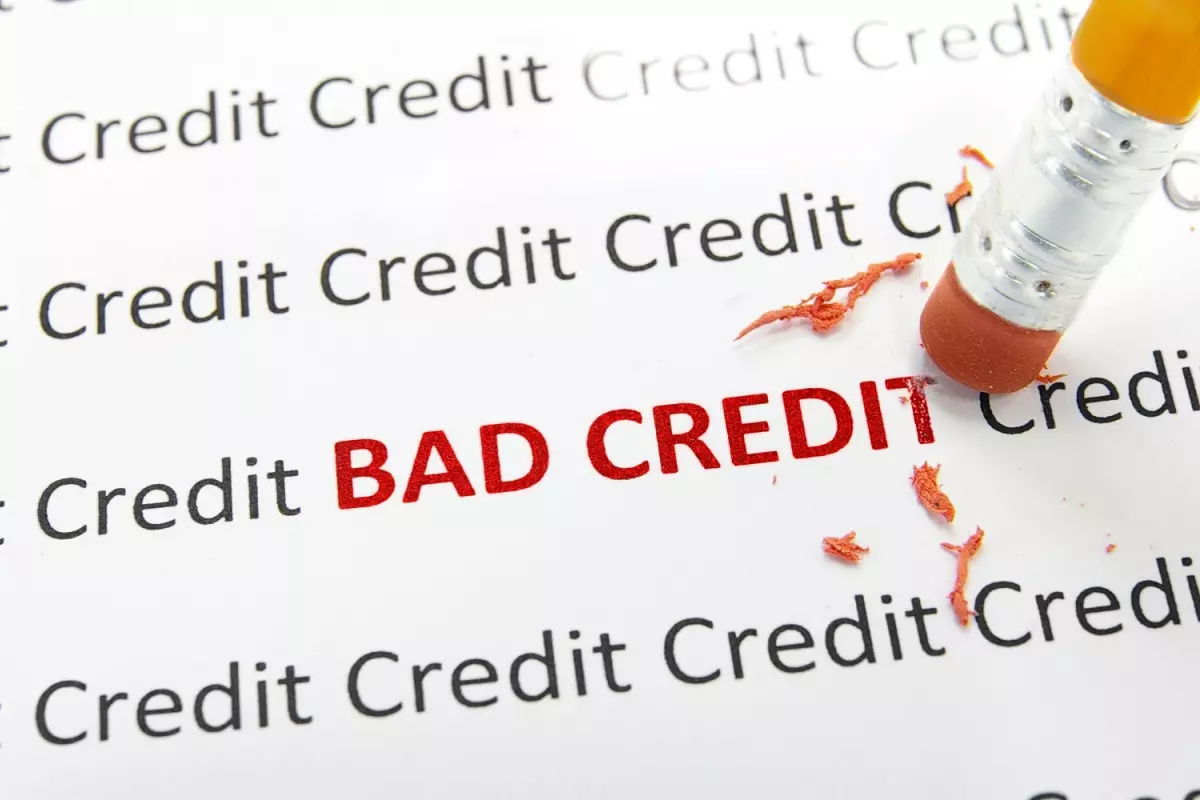Have you ever applied for a loan, credit card, or mortgage and been denied? There might be several reasons why. But the most common reason is often because of adverse credit.
While having adverse credit is a serious financial problem, it doesn’t mean you’re in total ruin. There is a road to recovery. Below, we cover what it means to have adverse credit, its impact on your score, and effective strategies to boost your rating.
Adverse Credit Meaning
Adverse credit is when you have negative marks on your credit report. Due to these marks, your credit score drops. As a result, adverse credit is also used interchangeably with bad, poor, or damaged credit. Ultimately, they all mean the same thing.

Adverse credit results from various factors, including missed payments, late payments, defaults, bankruptcies, CCJs, and more. We’ll go into more detail in the following sections. The more negative marks you incur, the lower your credit score will be.
What is an Adverse Credit History?
In the UK, there are three main credit reporting agencies: Experian, Equifax, and TransUnion. Each agency determines your credit score differently and has different scales for excellent, good, and poor credit.
Experian’s credit scoring system ranges from zero to 999. The breakdowns are as follows:
- 961 to 999 (excellent)
- 881 to 960 (good)
- 721 to 880 (fair)
- 561 to 720 (poor)
- Zero to 560 (very poor)
Equifax’s credit scoring system ranges from zero to 1,000. The breakdowns are as follows:
- 811 to 1,000 (excellent)
- 671 to 810 (good)
- 531 to 670 (fair)
- 439 to 530 (poor)
- Zero to 438 (very poor)
TransUnion’s credit scoring system ranges from zero to 710. The breakdowns are as follows:
- 628 to 710 (excellent)
- 604 to 627 (good)
- 566 to 603 (fair)
- 551 to 565 (poor)
- Zero to 550 (very poor)
If your score falls between the very poor and poor ranges, you will have an adverse credit history.
How Do I Know If I Have Adverse Credit?
The best way to check if you have adverse credit is to request a credit report and review your score and history. Every year, you can request a free credit report from each of the three credit agencies.

To do so, start by visiting the agency’s website. From there, you can sign up for a free account where you can request a report. If you prefer, you can also sign up for paid credit monitoring services to receive regular updates about score and account changes.
Pro Tip: If you choose the free option, you can spread out your reports throughout the year. Since each agency offers a free one every year, you can get a request from one agency every four months.
What Causes Adverse Credit?
As mentioned above, there are several factors that can contribute to an adverse credit rating. Here are some of the most common negative marks that can lower your credit:
- Late Payments and Defaults: Even missing your bill and debt payments by a day can result in a late payment mark being added to your report. A single late payment can lower your credit by 20 to 50 points. If you have a history of missed payments, you can experience a significant drop. If you happen to completely default on your loan payments, your credit score will experience an even larger drop of 100 to 250 points.
- Too Many Applications in a Short Period of Time: Every time you apply for a loan or credit card, the lender or company will conduct a credit check. A hard credit inquiry will temporarily lower your score by about five to 15 points. If you submit too many applications in a short period of time, these incremental drops can significantly harm your credit score.
- County Court Judgements (CCJs): A CCJ is a court order issued against a debtor who fails to make payments. A CCJ is a legal order that enforces repayment, and failure to comply can result in the seizure of assets. This type of negative mark can lower your score by 150 to 250 points, and it stays on your record for six years.
- Bankruptcy: Filing for bankruptcy is the most significant negative mark, and it can lower your score by 250 to 350 points. In addition, bankruptcies stay on your credit report for about six years. During this time, it can be difficult to secure any kind of financing. It will also likely take several years to repair your credit after bankruptcy.
- Individual Voluntary Arrangements (IVAs): Unlike a CCJ, an IVA is not a court-ordered repayment arrangement. With an IVA, you negotiate with the creditor and enter into a voluntary repayment plan. IVAs can help you avoid missed payments, defaults, and bankruptcy. However, it will still lower your credit score by about 200 to 300 points and remain on your credit for six years.
What Types of Loans Are Available with Adverse Credit?
The reality is that your loan options will be more limited if you have adverse credit. This is because lenders view individuals with negative marks on their credit as riskier applicants to lend to.

However, you’re not completely out of options. Here are some financing options you can explore even if you have adverse credit:
Bad Credit Loans
Payday loans are a short-term financing option that can advance you up to a few thousand pounds if you are approved. These loans can be used for a variety of reasons, including emergency home and auto repairs, bills, or rent. Payday loans are expected to be repaid within a short period of time, typically by your next payday.
Bad credit loans may be an option for adverse credit individuals because most lenders in this space have flexible requirements. In fact, payday lenders have lower minimum credit score requirements than traditional banks.
They may be willing to work with applicants who have adverse credit.
But keep in mind that if you are approved for a payday loan with adverse credit, you will likely receive a lower amount and higher interest.
Guarantor Loans
If you’re looking for a larger loan with lower interest rates, you can explore guarantor loans. With this option, you will need to have an individual with good or excellent credit co-sign the loan with you. This essentially means that if you aren’t able to make repayments, the co-signer will be responsible for paying back the loan on your behalf.
This is a great option for individuals with adverse credit because your co-signer’s credit will also be taken into account when determining eligibility. As a result, you may be able to qualify for better terms.
However, make sure you are transparent with your co-signer. Failing to make payments can negatively affect your credit and that of your co-signers.
Secured Loans
If you’re unable to find a co-signer or don’t want to risk their credit rating, you still have another option if you need a larger sum of money at better rates. You could opt for a secured loan. This means that you will be pledging something of value to secure the loan. The asset you pledge could be a car, home, or other valuable asset.
A secured loan gives the lender more security, which can make them more likely to offer you a larger loan amount with lower interest rates if you qualify. However, be aware that if you default, the lender can legally repossess your pledge asset to recover their losses. As a result, you risk losing your car, home, or other valuable asset if you default on a secured loan.
How to Fix My Adverse Credit
If you currently have adverse credit, it doesn’t mean you’re financially ruined. There is still a fix. Of course, fixing adverse credit won’t happen overnight. However, with time and diligence, you can boost your score.

Here are some strategies to help you improve your credit rating:
- Pay Down Debt: If you have extra cash or received a sudden windfall, use the funds to pay down your debts. You can either use the snowball or avalanche method. The snowball method involves paying off smaller sum loans that make a large impact when added up. The small wins can also be a great motivator. If you have loans with high interest rates, it would be better to use the avalanche method. This involves starting with the highest-interest loans first, then moving on to the lower ones. Overall, paying down debt can increase your score by about 30 points.
- Make On-Time Payments: Once you’ve made a significant dent in your loans, maintain regular payments. This means paying at least the minimum amount every month. If possible, try to pay a little more than the minimum to help you pay off the amount faster and with less interest. On-time payments can increase your score by about 20 to 40 points over time.
- Consolidate Debt: If you have multiple debts with different amounts, interest rates, and due dates, it can be hard to keep track of payments. Instead, you can opt for a debt consolidation loan that will lump all your loans into one. Not only can this help you better manage your payments, but it can also result in a lower monthly payment amount and interest rate. If you are eligible for a debt consolidation loan, your score can increase by about 20 to 30 points.
- Register to Vote: It may seem odd that registering to vote can increase your credit rating, but it can by a few points. Credit agencies often look to the electoral roll to confirm your identity. Registering to vote can make it easier for creditors to verify your identity, which can give you a small boost in your credit score.
- Fix Errors: If you notice errors or inaccuracies in your credit report, these mistakes can significantly affect your rating. The most common issues include incorrect personal or account information, outdated information or account statuses, fraudulent accounts, or unauthorized hard inquiries. If you notice any mistakes, contact the credit agency immediately to provide proof. Depending on the severity of the error, fixing it could result in a credit score increase of up to 100 points.
FAQ on Adverse Credit History
Do you still have some outstanding questions about adverse credit? Here are the answers:
Is a Default Classed as Adverse Credit?
A default occurs when you have several missed payments. When your account goes into default it leaves a negative mark on your credit report. This will lower your score, leading to adverse credit.
How Do You Avoid Adverse Credit?
There are several ways to avoid negative marks that lead to adverse credit. Here are some strategies:
- Make on-time payments
- Avoid bankruptcy
- Don’t submit too many credit inquiries in a short period of time
- Use 30% or less of your available credit limits
- Pay off high-sum and high-interest loans
How Does Adverse Credit Affect My Mortgage Application?
Most mortgage lenders have strict minimum credit requirements for applicants. If your credit is towards the lower end, you may still be approved but with higher interest rates. In cases where your credit score doesn’t meet the minimum requirements, your mortgage application may be denied.
How Long Does Adverse Credit Stay On Your File?
Adverse marks on your credit, such as defaults and late payments, stay on your report for around seven years. After this time, these negative marks will automatically be removed from your credit.